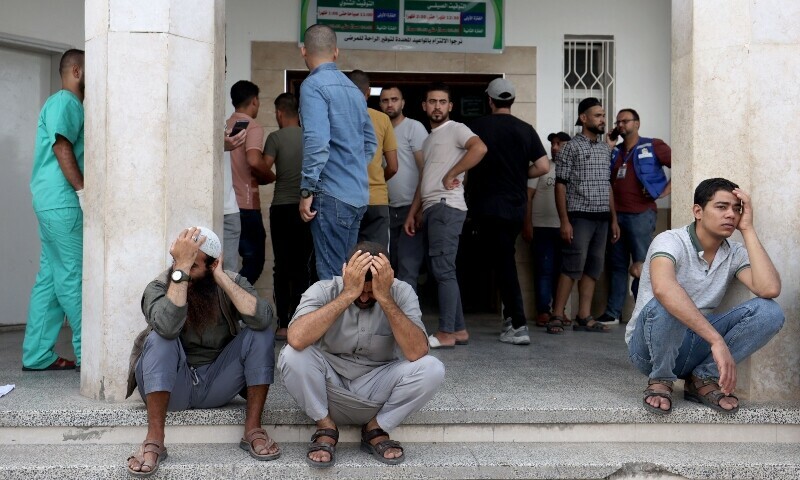As the Gaza Strip faces a deepening humanitarian crisis following a surprise attack by Hamas on October 7, the United Nations’ World Food Programme (WFP) issued a dire warning on Tuesday. The WFP revealed that the food situation in the besieged and blockaded Gaza Strip is rapidly deteriorating, with food stocks running dangerously low. This alarming situation is compounded by the closure of the only border crossing into Gaza not controlled by Israel. As the world watches, the Gaza Strip’s 2.3 million residents are left grappling with the looming specter of starvation and severe shortages.
Food Stores Nearing Depletion
Inside the Gaza Strip, the food situation is growing increasingly dire. According to Abeer Etefa, the Middle East spokeswoman for WFP, stocks in local shops are dwindling, with some stores left with only four or five days’ worth of food supplies. One of the most pressing concerns is the shortage of bread, as the limited availability of flour and fuel has caused four out of five flour mills to cease operations due to security concerns. Consequently, queues for bread have grown unbearably long, forcing residents to spend hours just to secure this essential staple.
Critical Shortages of Food Supplies
A startling revelation from Abeer Etefa is the fact that, out of 23 bakeries contracted by WFP in Gaza, only five are currently operational. As a result, the food supplies within Gaza are dwindling at an alarming rate, threatening the very survival of its inhabitants. Ms. Etefa emphasizes that there have been no reports of looting from WFP warehouses. However, the quantities left in these storage facilities are so minimal that they are insufficient to address the growing crisis.
Aid Stuck at Closed Crossing
The Gaza Strip’s dire food situation is exacerbated by the fact that aid agencies have been flying supplies into El Arish airport in Egypt, located approximately 20 kilometers from the Rafah border crossing. Rafah is the only entry point into the Gaza Strip not controlled by Israel. Egypt has maintained the closure of this critical crossing, preventing essential aid from entering and barring foreign nationals from fleeing the ongoing crisis. Israel’s repeated strikes on the Palestinian side of the crossing have contributed to its closure.
The Sinai Foundation’s Ahmed Salem disclosed that the trucks en route to the border contain Egyptian aid, while international aid remains stockpiled in warehouses, desperately needed by the people of Gaza. Nevertheless, Egypt has made efforts to repair the roads within the crossing that were damaged by Israeli attacks, which suggests a potential reopening in the near future.
The WFP has mobilized over 300 metric tonnes of food, either at or en route to the Rafah border crossing from Egypt into the Gaza Strip. This quantity is sufficient to feed approximately 250,000 people for one week. The hope is that these supplies will be able to reach their intended recipients, but obstacles remain in place.
The United Nations’ humanitarian chief, Martin Griffiths, is scheduled to arrive in Cairo on Tuesday for an extended visit to the region. His mission includes negotiations for improved aid access to the beleaguered Gaza Strip. As Gaza faces one of the gravest humanitarian crises in its history, the international community watches closely, awaiting a resolution to the mounting challenges that threaten the lives of those living within this troubled region. The urgent need for unimpeded access to the Gaza Strip is a matter of life and death, as the people of Gaza look to the world for help in their time of despair.















